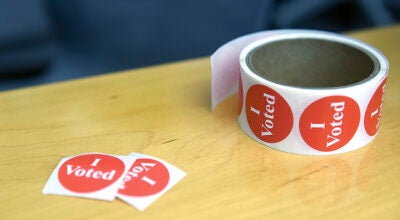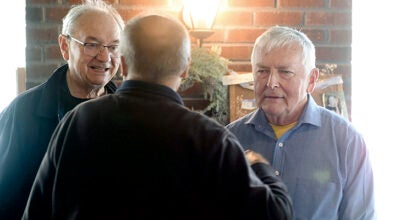Minnesota GOP moves to block Zuckerberg cash from elections
Published 5:52 pm Tuesday, March 1, 2022
|
Getting your Trinity Audio player ready...
|
ST. PAUL — A Minnesota Senate elections committee on Tuesday began considering a bill to block local governments from using outside money for election expenses.
The legislation mirrors efforts by Republican legislatures across the country after a foundation funded by Facebook CEO Mark Zuckerberg, the Center for Tech and Civic Life, awarded $400 million in donations to help local governments facilitate the 2020 election amid the coronavirus pandemic.
The Minnesota proposal, authored by Republican Sen. Mark Koran, of North Branch, would prohibit counties, municipalities and school districts from using funds from nonprofits and for-profit businesses to conduct elections. Since the 2020 election, 14 states have passed similar legislation blocking the grants, which Republicans nationwide have argued were used to influence the outcome of the elections.
There’s suspicion on the right that Zuckerberg’s money benefited Democrats in 2020.
“What this bill does is really common sense,” Koran told lawmakers on the committee. “It ensures that no outside money is used, which is imperative in keeping our elections fair and transparent and as accessible as possible.”
Koran did not elaborate on who may have exerted influence in Minnesota or how the grants influenced the outcomes of the state’s elections. Nobody testified against the bill before it was laid on the table for possible consideration later, and Democrats on the panel asked few questions.
The Center for Tech and Civic Life, largely funded by Zuckerberg and his wife, Priscilla Chan, sent hundreds of million of dollars in grants — dubbed “Zuckerbucks” by opponents — to election offices across the country ahead of the 2020 election to pay for changes to mitigate the spread of COVID-19 during the voting process.
The funds were used to provide protective equipment at polling locations, equipment to process mail-in ballots and to facilitate drive-through voting, among other purposes.
In neighboring Wisconsin, the state’s bipartisan Elections Commission in December rejected a claim that the grants were illegal.
The Minnesota bill is unlikely to see any movement in the Democratic-controlled House, and the Legislature is not obligated to pass election legislation this session. But Republicans will likely campaign on the issue ahead of November’s midterm elections, along with other issues they’ve been framing as “election integrity,” even though there’s been no evidence of widespread fraud in recent Minnesota elections.





